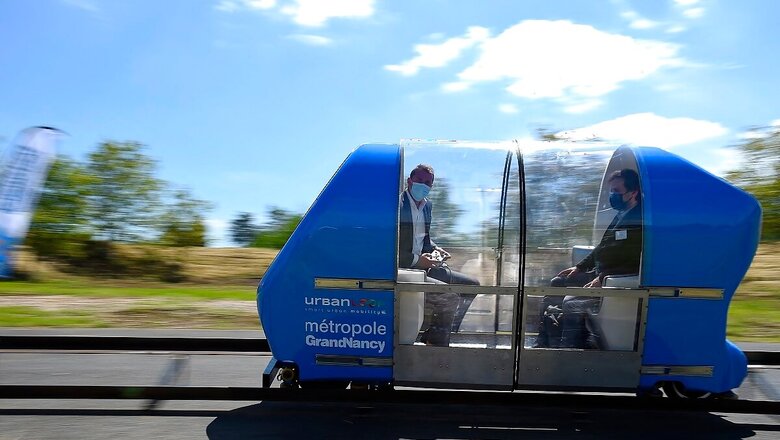
views
Last week an autonomous shuttle in France that runs on rails broke a record for the lowest energy consumption per kilometer. This ambitious project is a contender for use during the 2024 Olympic Games and could well revolutionize daily urban travel. Technology and ecology don’t always go together. Ambitious innovations often come with heavy environmental consequences. But that’s not the case for the Urbanloop project, which is the work of students, engineers and urban planners from the French city of Nancy.
It has even broken a record for environmentally conscious transportation. With 0.05 kWh used per kilometer traveled, this new mode of getting around can claim the title of most energy-efficient autonomous train in the world. Under the eye of France’s Transport Minister Delegate Jean-Baptiste Djebbari, this is the fulfilment of a bold endeavor launched four years ago.
Pascal Triboulot, president of Lorraine INP, a group of 11 engineering schools in Lorraine, wanted to reduce the number of cars in Nancy by imagining an alternative mode of transportation. The ingenuity came in his ability to involve the schools and students in a national project by having them work with research laboratories.
Five key constraints had to be respected: the ecological and economic impact had to be reduced, Urbanloop had to be accessible to all, it had to respect safety standards and it had to be possible to do it with “technological building blocks." (A technological building block is a sub-assembly already developed that can be reused in several projects.)
The system would see a passenger use a mobile application to enter his route so that the capsule takes him to the right destination at an average speed of 60 km/h. The designers of the project aim to create a first loop by 2024 with a full-scale test that would transport athletes around the Olympic village in Paris. To achieve this, they still need to reduce the costs of infrastructure and materials while obtaining investments of up to 4 million euros.
Urbanloop is aiming for a commercial launch in 2026.
Read all the Latest News, Breaking News and Coronavirus News here.




















Comments
0 comment